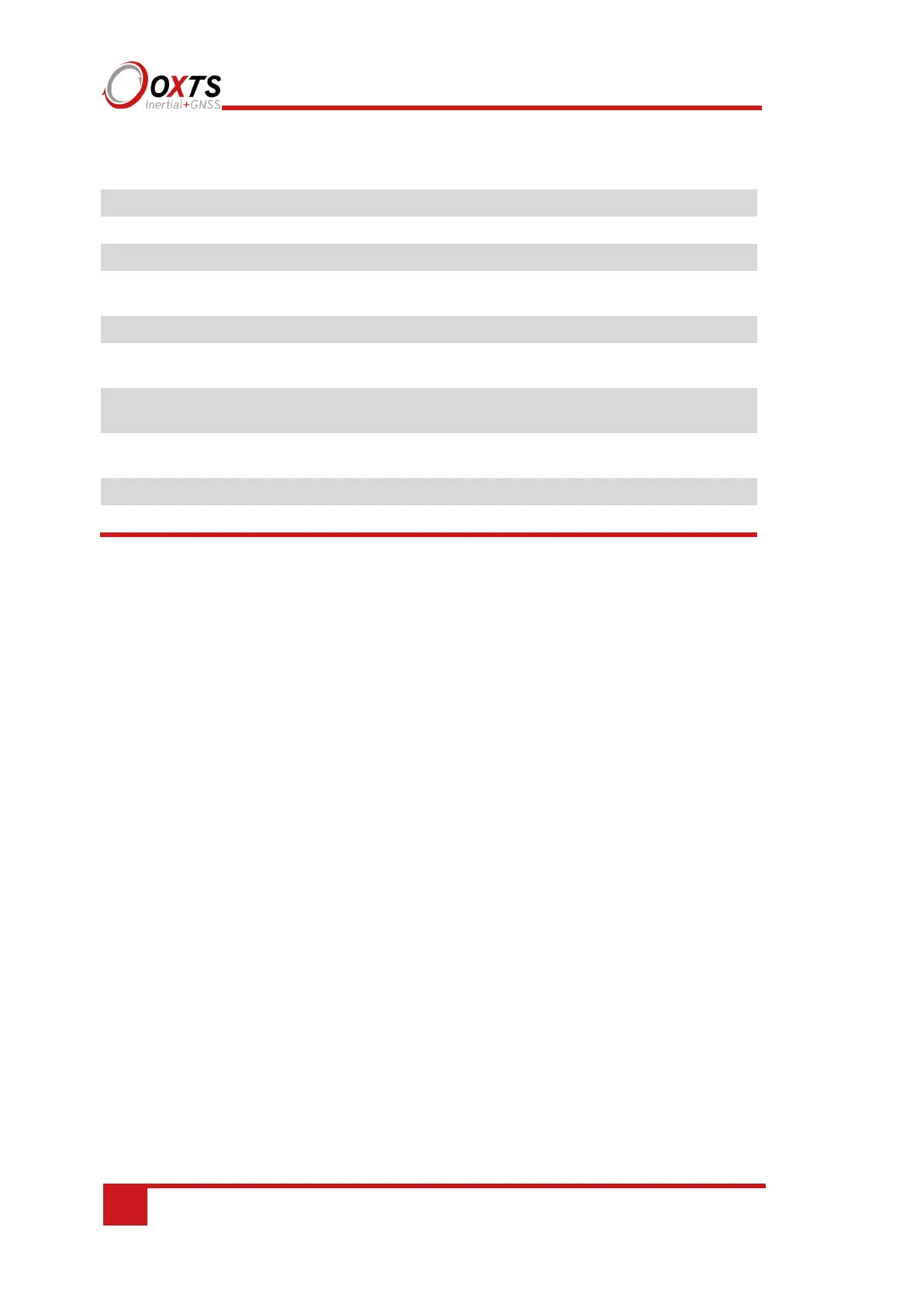114
Oxford Technical Solutions
1587 (633h) IsoOrientation ISO 8855 orientation Table 73
1588 (634h) IsoVsVelocity ISO 8855 vehicle system velocity Table 74
1589 (635h) IsoVsAcceleration ISO 8855 vehicle system acceleration Table 75
1590 (636h) IsoVsAngularVelocity ISO 8855 vehicle system angular velocity Table 76
1591 (637h) IsoVsAngularAcceleration
ISO 8855 vehicle system angular
acceleration
Table 77
1592 (638h) IsoIsVelocity ISO 8855 intermediate system velocity Table 78
1593 (639h) IsoIsAcceleration
ISO 8855 intermediate system
acceleration
Table 79
1594 (63Ah) IsoIsAngularVelocity
ISO 8855 intermediate system angular
velocity
Table 80
1595 (63Bh) IsoIsAngularAcceleration
ISO 8855 intermediate system angular
acceleration
Table 81
1596 (63Ch) IsoEfsVelocity ISO 8855 earth-fixed system velocity Table 82
1597 (63Dh) IsoEfsAcceleration ISO 8855 earth-fixed system acceleration Table 83
The status information in NCOM is output over the CAN bus on Identifiers 500h to 5FFh.
The offset from 500h is the same as the Channel number in the NCOM message
definition. The bytes 0 to 7 are the same in the CAN message as in the NCOM packet.
Table heading definitions
The fields in the tables have the following meanings.
Offset (bits). This is the offset into the message where the signal starts. To compute the
offset in bytes divide the value by 8.
Length (bits). This is the length of the signal in bits. To compute the length of the signal
in bytes, divide the value by 8.
Type. This specifies either an unsigned value (U) or a signed value (S).
Units. This is the units for the signal.
Factor. This is the factor that the integer unit should be multiplied by to get the signal
into the units given in the table.
Offset. This is the value of the signal when the integer value in the CAN message is zero.
It is zero for all the RT signals and can usually be discarded.
